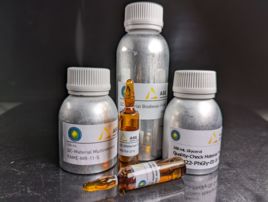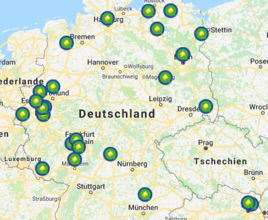AGQM-project report: "Recommendations for a Mexican biodiesel standard and the Infrastructure required for its handling"
Since governments and societies becoming more and more aware of the geopolitical, economical and environmental risks of oil dependency biofuels are gaining a rising attention. In Mexico the use of biodiesel as an additive to improve the lubricity of Ultra Low Sulfur Diesel is considered. As the biodiesel quality affects the properties of the final blended fuel agreeing on common standard for biodiesel properties is an important step towards the creation of a national biodiesel market.
In consequence to its strong commitment to reduce greenhouse gas emissions the promotion of energy efficiency and renewable energy resources became a key task for the Mexican government in the process to make its energy sector become more sustainable. As one of the first steps in this process on the 2d of February 2008 the “Bill for the Promotion and Development for Biofuels” (Ley de Promoción y Desarrollo de los Bioenergéticos) was passed. The bill sets the basis for the promotion of biofuels in Mexico and initiates the development of instruments, actions, and regulations which allow a further sustainable development of the production and commercialization of biofuels. In this context the report aims at supporting the progress towards the development of technical standards by actively incorporating international experience.
The core objective of this report is to provide a coherent proposal for a Mexican technical standard for biodiesel and its blends based on the actual existing international experiences available in the field. For this purpose the report mentions the relevant quality properties of biodiesel making reference to the existing technical standards of Europe, United States and Brazil.
From that basis an individual proposal for a Mexican technical standard as well as recommendations for a quality management system are derived.
Concerning the former test methods and their respective equipment and operation costs as well as recommendations for the infrastructure required for the handling of biodiesel are given. This report is available for download.





